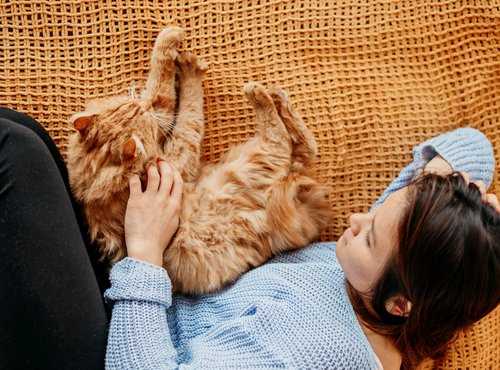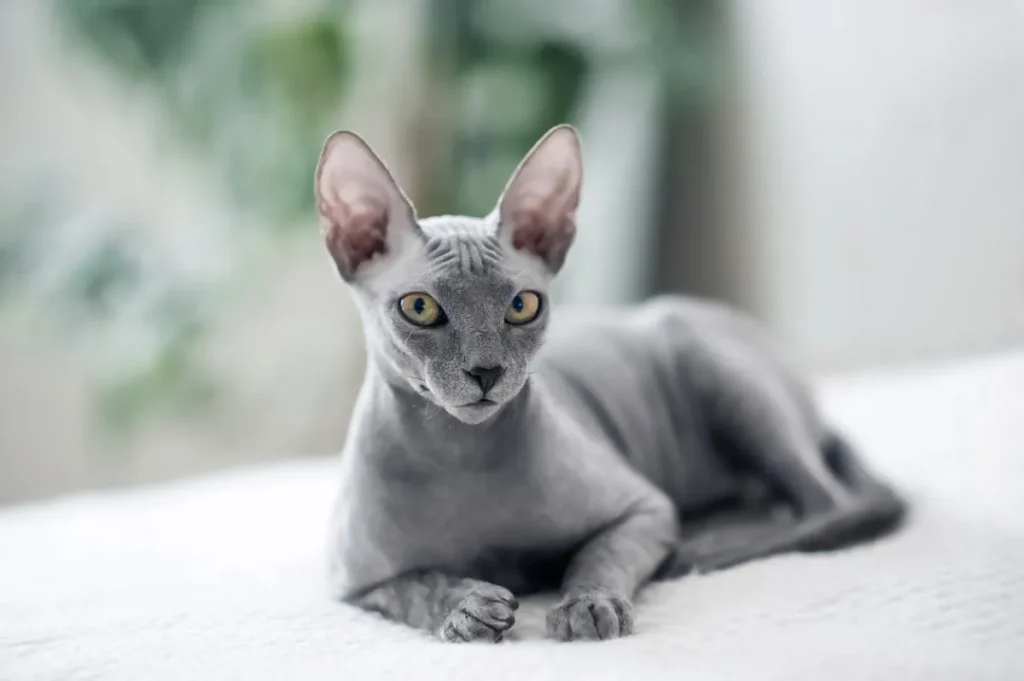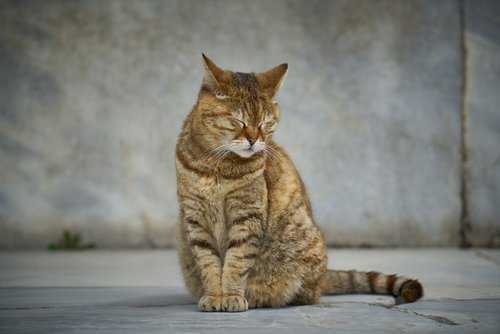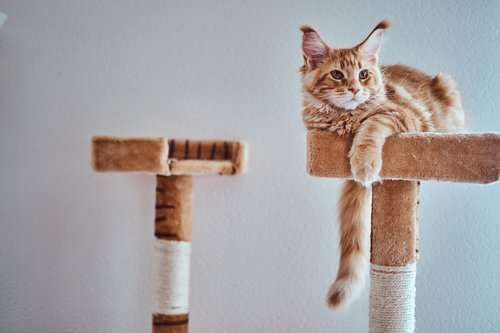
When I call my cat, does it come to me?
Does my cat prefer to be around me more than other people?
If my cat goes missing for a day, will it find its way back home?
If you have a feline companion, chances are that one of the three or all of the three questions above are constant thoughts in your head or questions you have had to ask friends around who also have paw-some partners. For ages, people have seen cats as difficult to interpret and self-reliant beings, which naturally leads to questions about their connections with humans. One of the most fascinating questions is whether cats recognize and feel close to their owners. That you are on this page is enough to help me understand that you are a fellow cat-lover and together, I would love us to explore the topic DO CATS RECOGNIZE THEIR OWNERS? Although some might think of cats as distant or uninterested, numerous stories and observations indicate that many cats do form strong connections with the people who care for them.
THE HUMAN-FELINE BOND

Cats are the second most popular pets globally. Throughout human history, cats have been our companions. Initially, our relationship with cats was practical, stemming from the early days of farming. However, over thousands of years, this bond has deepened into a mutual connection and affection. Whether from the African wildcat or the modern house cat, the captivating history of cats spans across the globe, touching countless lives along the way. During the Middle Ages, cats were often seen as sinister creatures associated with darkness and witchcraft. This led to widespread condemnation by religious figures and high-ranking officials, resulting in the torture and killing of many cats.
However, in more recent times, particularly during the Age of Enlightenment in the 17th and 18th centuries, cats started to shake off their negative reputation and became valued as loyal pets once again. Today, cats are immensely popular and beloved companions in Europe. According to a recent study by Boehringer Ingelheim and IPSOS, over 91 percent of cat owners report that their feline friends have a positive impact on their lives.
The human-feline bond is considered important for several reasons which include but are not limited to for many people, the presence of a feline companion can alleviate loneliness and provide comfort during difficult times, interacting with cats has been shown to reduce stress and anxiety levels in humans and studies have found that owning a cat can have various health benefits, including lower blood pressure, reduced risk of heart disease, and improved mental health.
HOW DO CATS RECOGNIZE THEIR OWNERS?
Cats recognize their owners through scent, sound, and sight. They have a strong sense of smell and can recognize their owner’s scent. Cats also remember their owner’s voice and recognize their appearance. The bond is built on familiarity and positive interactions over time.
Just like humans, cats have been studied to have two kinds of memories that help facilitate the recognition of their owners and familiar experiences – the short-term memory and the long-term memory.
The short-term memory of cats involves remembering things for a brief period, typically only a few seconds or minutes, for instance, recalling where they placed their toy, cats may remember when they were last fed and anticipate meal times based on their short-term memory of when they were last fed.
The long-term memory of cats refers to the ability to store and recall information over extended periods, ranging from weeks to years, for instance, remembering significant details like who their owner is or the place they once called home (this is your cue not to fret if your feline companion goes missing).
We can not be completely sure whether cats recognize our faces, but based on scientific findings, it appears unlikely that they do. However, our feline companions have been studied to recognize their owners using scents, voice recognitions and experiences like play and being fed.
How Smell and Sound Help Cats in Owner Recognition

Similar to humans, cats possess five senses. However, there is a widespread belief among pet owners that domestic cats may possess a sixth sense—a remarkable ability to navigate and find their way back home even over long distances. These senses (smell, hearing, taste, touch and partial sight) function together and produce a combined effect with the short-term memory and long-term memory of cats to help them recognize their owners.
THE SENSE OF SMELL – Recognition through scents
Research shows that cats have a sense of smell that is 14 times better than that of humans and this is associated with the fact that cats have over 200 million smell sensors in their humans, on the other hand, humans have just 5 million odour sensors. This ability makes the sense of smell of cats the primary way your feline companion recognizes you as its owner.

As humans, we emit a scent that is undetectable to most noses but can be picked up by cats, regardless of whether we have applied aftershave or perfume. Cats have a remarkable ability to identify the distinct scent of their owner and link it to positive moments shared. These may include the comforting aroma during feeding times, the soothing scent during grooming sessions, or the affectionate ambience experienced during cuddles and playtime. This means that as long as you’re close enough for your cat to smell you, they’ll recognize your unique scent and this explains why it is important to spend adequate time with your feline companion.
Our feline companions have their scent glands located on areas such as their cheeks, forehead, sides, and paws. As a cat-owner, don’t get upset when your feline companion has any of these parts of their body rubbed against you continuously – they just want to get to know you better!
THE SENSE OF HEARING – Voice recognitions
Just like the cat’s sense of smell, a cat’s ears possess remarkable sensitivity, far surpassing that of humans. Cats have the remarkable ability to detect a vast array of sounds, ranging from the familiar to the ultrasonic frequencies that are beyond the auditory range of human perception. This heightened auditory acuity allows cats to perceive subtle sounds in their environment, including the rustling of leaves, the chirping of insects, and the faintest whisper of prey. Their keen ears serve as an invaluable tool enabling cats to navigate their surroundings with precision and agility and in turn recognition of their owners.

Studies have revealed that cats possess the remarkable ability to distinguish their owner’s voice amidst the chatter of strangers, and they may even react to specific words or tones. This suggests that engaging in conversation with your feline companion can foster a stronger connection between you both, as they come to associate the sound of your voice with delightful activities such as play sessions, cuddle time, and tasty treats.
Interestingly, cats don’t just respond to human speech; they’re also highly attuned to the various sounds in their surroundings. They may recognize the rhythm of their owner’s footsteps or the familiar rumble of their car pulling into the driveway. It’s no wonder, then, that many cats eagerly dash to the door to greet their owner upon their return or perk up with a meow of anticipation at the slightest rustle of their favourite toy. This heightened sensitivity to auditory cues further strengthens the bond between cats and their beloved owners, creating moments of joy and connection in their shared world.
Here are some interesting stories that help you understand that cats recognise their owners even in death:
- In Montagnana, Italy, a cat named Toldo lived with his owner Renzo and was rescued as a kitten. Sadly, Renzo has passed away, but Toldo continues to visit his grave every day, bringing small gifts.
- In China, a cat named Enong remained loyal to his owner even after the man died in a gas explosion at home. Despite being injured in the blast, Enong waited for his owner’s return and was eventually taken to an animal shelter for treatment.
- In Indonesia, another cat stayed by her owner’s grave for a whole year. Initially mistaken for a stray, the cat kept returning, spending time playing and sleeping on top of the grave.
So, as we reflect on the question of whether cats recognize their owners, let us take comfort in the knowledge that our feline companions possess a profound understanding of the bonds that unite us. Through their keen senses, their memories, and their unwavering loyalty, cats remind us that love knows no bounds, transcending time, space, and even the veil of death. And in the quiet moments we share with our furry friends, we find solace in the knowledge that, to them, we will always be more than just owners—we will be cherished companions, bound together by the timeless thread of mutual affection.
Do Cats Miss Their Owners?
The answer, based on the evidence of their keen senses, memory, and the stories above, is likely yes. When their owners are gone, cats may experience a sense of loss and longing. Their familiar routines are disrupted, the comforting scents associated with their humans are absent, and the sounds they associate with their owner’s presence are no longer there. This can lead to changes in behavior, such as decreased appetite, increased vocalization, or excessive grooming.
How to Strengthen the Bond with Your Feline Friend
Understanding how cats recognize and connect with us allows us to nurture and strengthen the bond we share. Here are some tips to create a deeper connection with your feline companion:
- Quality Time is Key: Cats are social creatures, despite their reputation for independence. Dedicate regular time for interaction. Play with your cat using toys that stimulate their natural hunting instincts. Engage in grooming sessions, which they often find pleasurable and provide an opportunity for bonding.
- Positive Reinforcement: Reward good behaviour with treats, praise, or a gentle scratch behind the ears. This positive association strengthens the desired behaviour and reinforces the positive connection between you.
- Create a Safe Space: Provide your cat with a designated area where they feel secure and comfortable. This could be a cozy cat bed, a scratching post, or a perch overlooking their surroundings. Having a safe haven allows your cat to retreat when they feel overwhelmed or stressed.
- Respect Their Boundaries: Cats value their independence. Don’t force interaction if your cat seems withdrawn. Pay attention to their body language and respect their need for alone time.
- Maintain Consistent Routines: Cats thrive on routine. Consistent feeding times, litter box cleaning schedules, and playtime rituals provide a sense of security and predictability.
By incorporating these tips into your daily routine, you can foster a deeper connection with your cat, creating a mutually beneficial and loving relationship.

